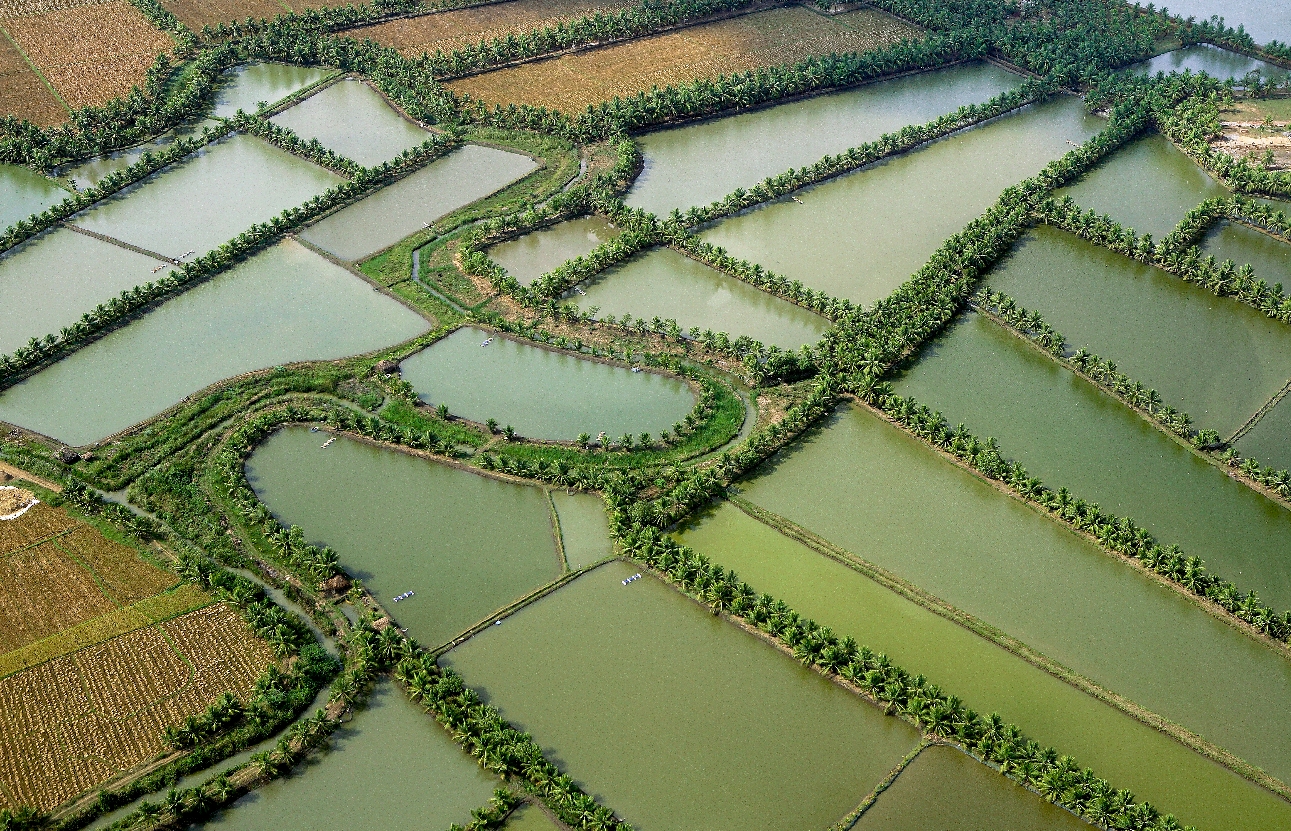Consider the facts: India has a 4% share of the existing freshwater in the world and approximately 16% of the global population. Of the country’s total water supply, 85% goes into irrigation for the agricultural sector. Climate extremes are expected to dramatically transform rainfall patterns and water availability in India.
Ashwini Chhatre, Associate Professor and public policy expert at the Indian School of Business, and his co-authors Kyle Frankel Davis, Narasimha D. Rao, Deepti Singh and Ruth De Fries address this scenario. The authors point out that climate change will upend crop yield in India, rural livelihoods as well as food supply.
Diet is tightly related to crop productivity. This renders the national food supply uniquely vulnerable to climate change and monsoon grain production. Rice remains the crop most dependent on abundant water. So, can changing our food basket improve the country’s immunity to climate change?
The Water Footprint
To understand the context for the effects of climate change, it helps to understand the current scenario though the concept of the water footprint or ‘virtual’ water content– the total amount of water that goes into producing a product. Researchers estimate that after wheat, rice contributes the second-largest share of the water footprint of crop production. This virtual water content includes rainfall consumption, surface/ groundwater and freshwater use for assimilating pollution respectively. According to estimates shared by the United Nations Educational Scientific and Cultural Organization (UNESCO), approximately 2500 litres of water goes into one kilogram of rice.
What’s more, India has the highest water footprint for crop production in the world. A recent report in the Mint explained how India’s rice exports amount effectively to two trillion tonnes of virtual water exports:
In 2014-15, India exported 37.2 lakh tonnes of basmati. To export this rice, the country used around 10 trillion litres of water. To put it another way, India virtually exported 10 trillion litres of water. At least one-fifth of this would have been surface/groundwater.
India is listed amongst the world’s highest water exporters alongside countries such as the US and China. India is thus effectively exporting its scarcest commodity – freshwater.
The Price of Plenty
As the authors note, the Green Revolution tripled grain production in India primarily by expanding rice and wheat production. Both of these are highly water-intensive crops. We are now paying the price of plenty.
The authors aim to analyse India’s crop mix to identify the combination that can optimise grain yield under already water-deficient conditions. They studied the effect of factors like temperature and rainfall that are associated with climate variability on rainfed yield over a span of 45 years, until 2011 for five monsoon crops – rice/paddy, finger millet, maize, pearl millet and sorghum. They found that rice yields are most susceptible to precipitation variability in both irrigated and rainfed areas. Irrigated rice fields contributed very modestly to yield in an increased rainfall season, but rice yields underwent drastic reductions in extreme dry years.
On the other hand, allocation of farmlands to four alternative crops — finger millet, maize, pearl millet and sorghum — can render production more stable because they are less susceptible to yield decline on the whole gamut of climate extremes. Most of the alternative grain cultivation in India remains rainfed. Indeed, 93% of the total Kharif output of finger millet is rainfed. The corresponding percentages for pearl millet are 87%, for sorghum 95%, and for maize 64%. In comparison, only 40% of the rice Kharif output is rainfed. This renders these millet grains better adapted to rainfall variation.
To measure the impact of drought and non-drought condition on the productivity of alternative crops, first the researchers controlled for the harvested area (excluding maize). By allocating the maximum area to coarse grains, they kept the production of maize constant. As a result, productivity dropped by 17.2% in drought conditions and 18% in non-drought conditions.
In the next step of their analysis, they increased the harvested area for all the four alternative crops. Production surged by 39.6% in drought and 37% in non-drought years.
Changing India’s Food Basket
India’s agricultural policy can steer the way to a more climate resilient food supply by optimally increasing coarse grains in the crop production mix. As coarse grains are widely rainfed, they are better adapted to rainfall changes. As a result, in conditions of extreme heat or drought, maize and finger millet yields are less affected than rice.
Although all foodgrain production will be affected negatively by climate change, the impact on rice production is likely to be particularly severe. To minimise food basket shocks in response to climate change, an adjustment in India’s food basket can go a long way. However, crop mix changes must be combined with efforts to build buffer stocks, improve access to irrigation and develop high yielding drought-tolerant varieties.
In conclusion, we must note that grain production varies every year. It is affected by climate extremes and yield anomalies and that leads to serious consequences on food supply. Chhatre et al’s research explains why it is important to build our understanding for the intertwined impacts of climate shocks on grain production and to enhance food system resilience. In the process, India’s agriculture may find another benefit: lower water footprints and lower virtual water exports.
About the Research
Davis, Kyle, Chhatre, Ashwini, Rao, Narasimha, Singh, Deepti and DeFries, Ruth, 2019. Sensitivity of grain yields to historical climate variability in India. Environmental Research Letters, 14(6): 064013. DOI: 10.1088/1748-9326/ab22db
About the Writers
Amrita Chakraborty is an Analyst at the Bharti Institute of Public Policy, Indian School of Business.
Ashima Sood is Fellow at the Centre for Learning and Management Practice at the ISB and Editor, ISBInsight.








